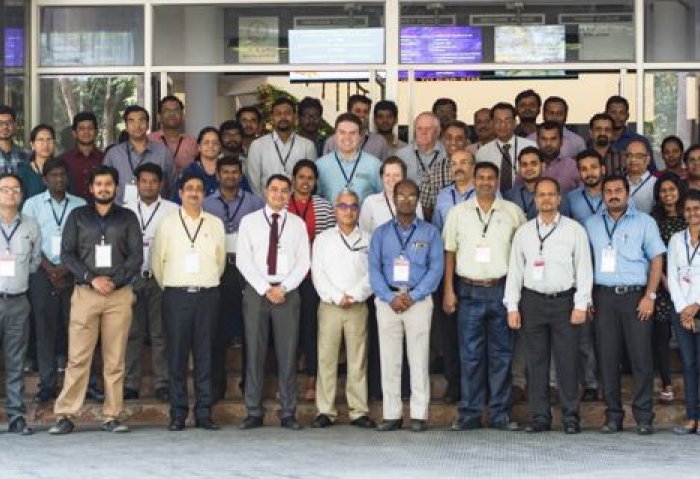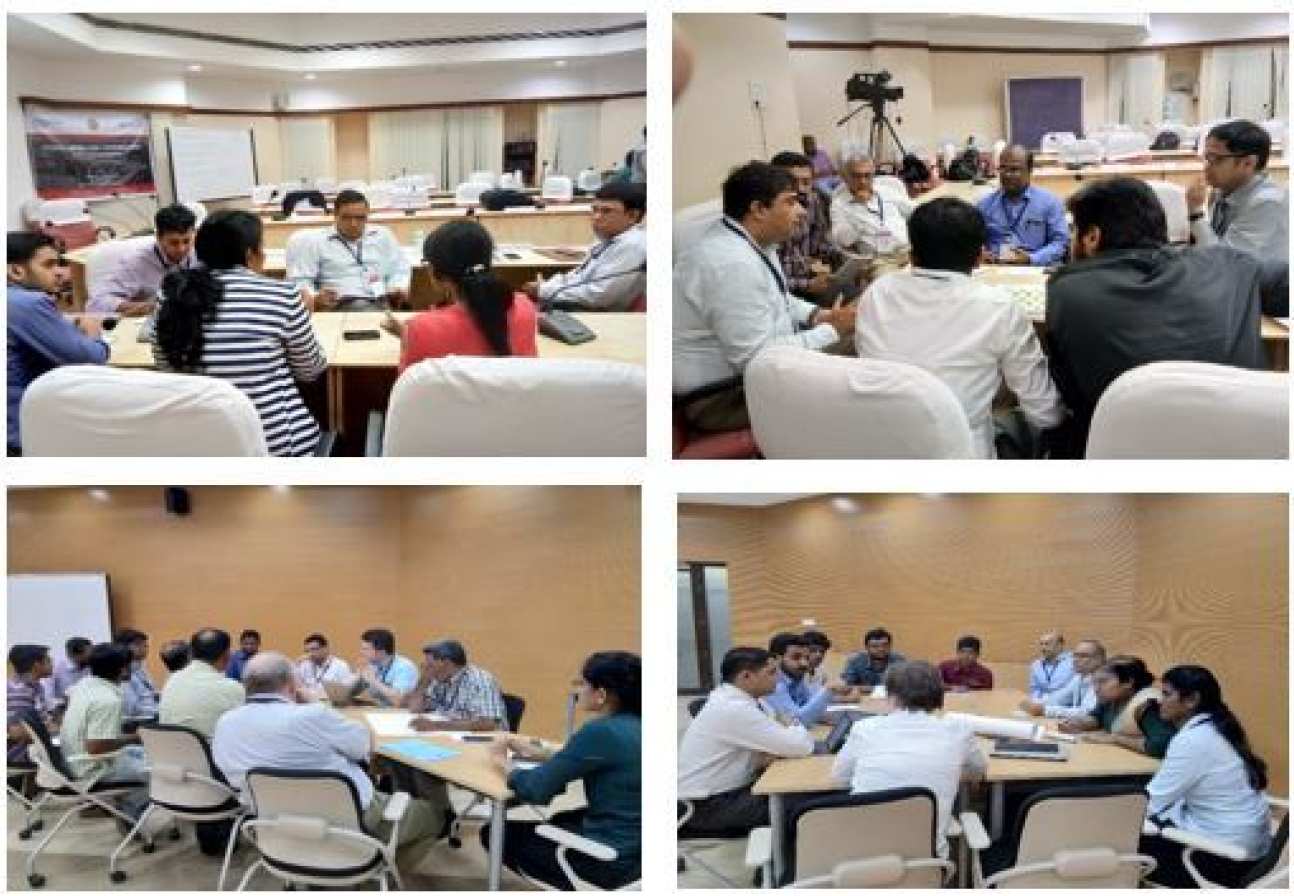Digital Metro-Rail construction workshop
by Tim Gordon

Digital Metro-Rail construction workshop
Digital Metro-Rail construction workshop
Organized by Indian Institute of Technology Madras in collaboration with Imperial College London and the University of Cambridge, the Digital Metro-Rail construction workshop aimed at identifying the challenges during metro-rail construction in India and exploring to what extent digital technologies can help in mitigating these problems. The workshop had participation from representatives of six Indian metros: Ahemadabad, Mumbai, Chennai, Kochi, Delhi and Nagpur. Additionally, general contractors such as L&T, AFCONS, who have been part of such projects were present. In addition, technology providers including Trimble, Bentley and other third-party service providers were part of the discussions. Prof Jennifer Whyte and Mr Ranjith Soman from the Centre for Systems Engineering and Innovation and Dr Ioannis Brilakis from the University of Cambridge represented the research community from UK. Prof Koshy Varghese, Dr Ashwin Mahalingam, Dr Benny Raphael, Dr Uma Maheswari, Dr Venkata Santosh Kumar Delhi, and Dr Ganesh Devkar represented the construction academic community in India. Dr Bhargav Dave from Aalto University was also part of the workshop.
Day one began with the IIT Madras team introducing the theme for the workshop, as well as providing an overview of the metro rail  construction in India. This was followed by presentations from Prof Jennifer Whyte and Dr Ioannis Brilakis on their research experiences from UK construction in digitalization. This allowed the participants to understand how and to what extent digitalization is carried out in the rest of the world and the potential of digital metro rail construction. The following session outlined the various metro systems in India and their position in the digitization process.
construction in India. This was followed by presentations from Prof Jennifer Whyte and Dr Ioannis Brilakis on their research experiences from UK construction in digitalization. This allowed the participants to understand how and to what extent digitalization is carried out in the rest of the world and the potential of digital metro rail construction. The following session outlined the various metro systems in India and their position in the digitization process.
Based on the identified challenges, participants were divided into small groups where they focused on the selected topics. Each group then presented an outline of their discussion and how the challenges could be tackled.

Based on group discussions and stakeholder feedback, numerous challenges and research interests were identified. As a result, the group plans to apply for additional funding in order to further develop the key challenges identified.
Article text (excluding photos or graphics) © Imperial College London.
Photos and graphics subject to third party copyright used with permission or © Imperial College London.
Reporter
Tim Gordon
Department of Civil and Environmental Engineering